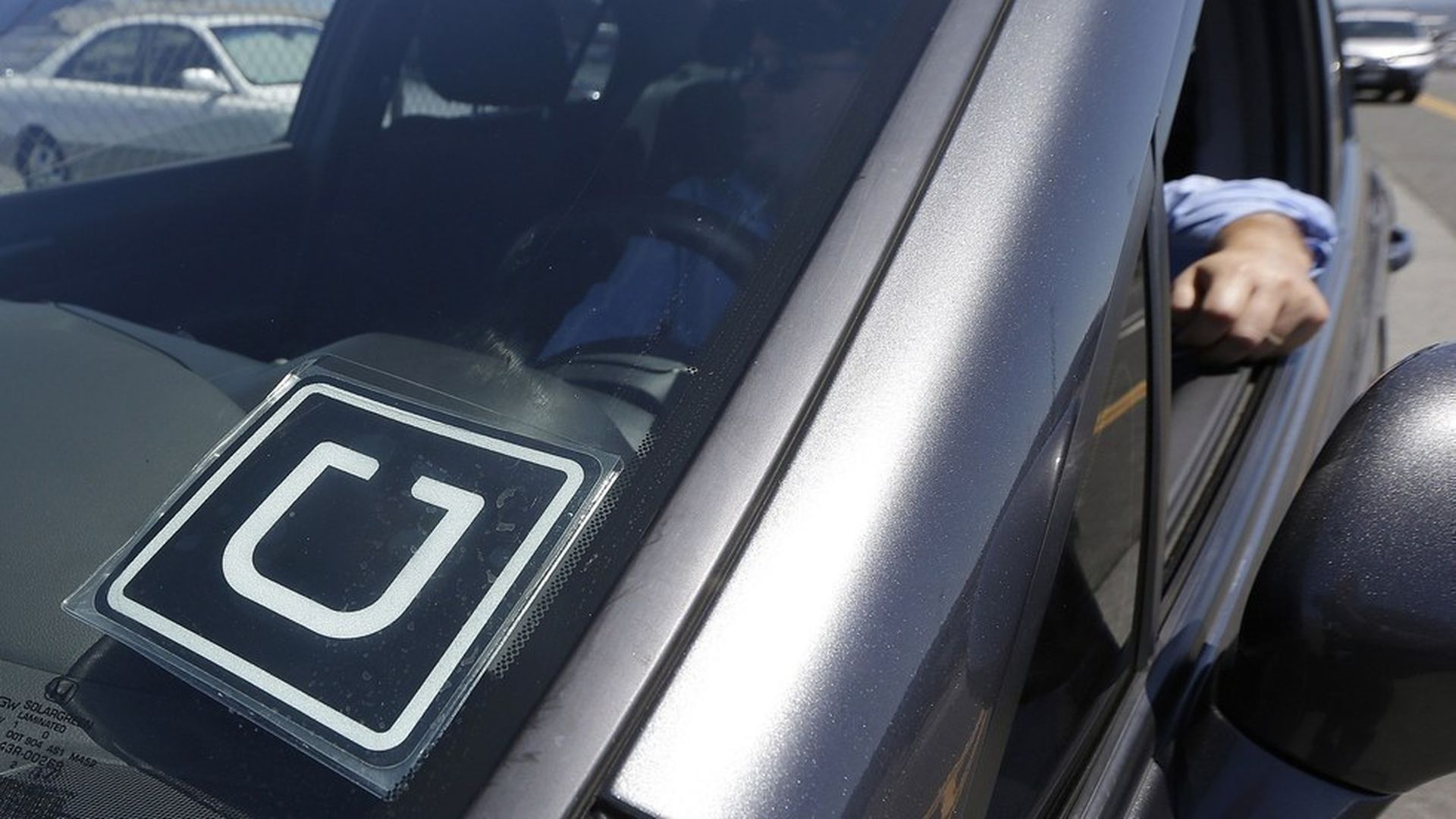Mar 8, 2017 - Technology
Uber says it will stop using software to evade law enforcement
Add Axios as your preferred source to
see more of our stories on Google.

Jeff Chiu / AP
Less than a week after a report from the New York Times exposed Uber's use of special software to covertly evade local law enforcement, the ride-hailing company says it will stop using its "Greyball" tool for that purpose.
We have started a review of the different ways this technology has been used to date. In addition, we are expressly prohibiting its use to target action by local regulators going forward. Given the way our systems are configured, it will take some time to ensure this prohibition is fully enforced.
Uber's "Greyball" software added to a growing list of ethical questions surrounding Uber—with Silicon Valley congressman Ro Khanna calling it "deeply disturbing."
Here's the full statement from Uber's chief security officer, Joe Sullivan:
We wanted to give everyone an update on "greyballing". This technology is used to hide the standard city app view for individual riders, enabling Uber to show that same rider a different version. It's been used for many purposes, for example: the testing of new features by employees; marketing promotions; fraud prevention; to protect our partners from physical harm; and to deter riders using the app in violation of our terms of service.
We have started a review of the different ways this technology has been used to date. In addition, we are expressly prohibiting its use to target action by local regulators going forward. Given the way our systems are configured, it will take some time to ensure this prohibition is fully enforced. We've had a number of organizations reach out for information and we will be working to respond to their inquiries once we have finished our review.
